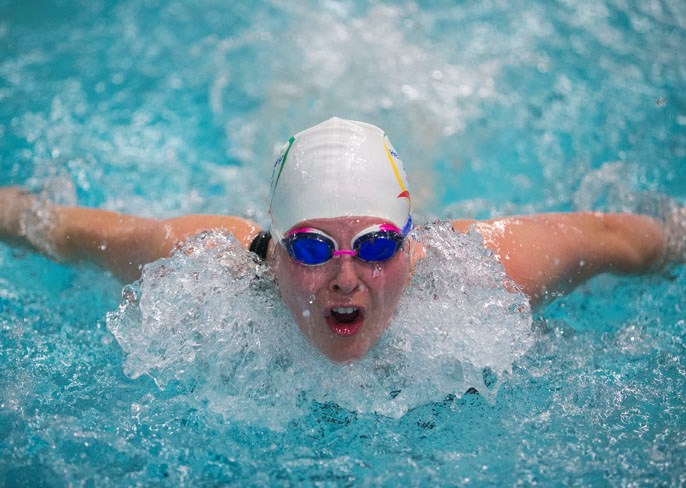Three athletes from St. Albert, Sturgeon County and Morinville will be heading to Antigonish, N.S., later this month to represent the province in the Special Olympics Canada Summer Games.
Jill Allen from St. Albert and Jake Weismantel from Sturgeon County will play softball for Team Alberta, while Michelle Tschetter of Morinville will swim. All three athletes have been training hard in preparation for the national games that run from July 31 to Aug. 4.
Team Alberta Softball
Allen, 36, has been playing softball for Team Alberta for the past five years. She said playing for a provincial team is like a dream come true because it took a lot of hard work and dedication. She said she was hesitant in her first year playing, but she's proved that she can strive to do whatever she puts her mind to."It's hard to believe that I made it. It's got you thinking you want to get to the next spot – like the worlds. You can see them in your headlights."
In fact, the Canada Summer Games are a qualifying event for athletes to represent Canada in the 2019 Special Olympics World Games held in Abu Dhabi, United Arab Emirates.
Allen described the Special Olympics as a truly uplifting experience, filled with people who genuinely want to see her succeed.
"You see it in your teammates and your coaches. They want you to have lots of fun and be open to share your feelings – your heart. They're so genuine."
This is Weismantel's first time attending the Summer Nationals. Special Olympics marketing and communications manager Katherine Dalusong said Weismantel, who is 20, is honoured to be a part of Team Alberta.
"He's looking forward to meeting new people and seeing Nova Scotia again," Dalusong said.
Weismantel and Allen have been practising with the softball team twice a week, running through specific moves and different drills on the field. They also train and practice on their own time. Allen said she can only imagine how much practice the other provincial teams are doing in comparison.
"I'm just looking forward to the competition part. I like the competitive feeling and playing the game. It's been a lot of practice, so I'm ready to go," she said, laughing.
Team Alberta Swimming
Swimming is second nature for fish-out-of-water Michelle Tschetter. This is her second time competing at nationals; she brought home seven medals from the 2014 Summer Games in Vancouver. She said she's hoping to bring home at least eight medals from Nova Scotia.Tschetter, 30, will compete in five different races, including a team relay race. Unlike her first time at nationals, Tschetter will be competing in the butterfly stroke event. She said the stroke can be a challenge because it takes a lot of energy out of your arms. In Vancouver, one of the coaches noticed Tschetter swimming and suggested she'd be great at the butterfly stroke.
"So, she started practising it and she's really improved in the past couple years," said Karen Tschetter, Michelle's mother.
Tschetter practices with Team Alberta on a weekly basis and also on her own with a private trainer on Monday nights. She credits her trainer for helping improve her flip turns, dives and breaststrokes. She said she's also grateful to have the support of her mother, who drives her to and from swimming practices.
Karen said an athlete must win at least three gold medals at the national level to qualify for Team Canada and go on to represent the country at the Special Olympics World Games. In Vancouver, Tschetter won three gold medals, but one was for a team relay race. Tschetter said she's confident she'll perform better this year than the races in Vancouver. She said she's not nervous at all.
"I'm used to competitions. I've done this before," Tschetter said. "I just think about going there to have fun."
Celebrating 50 years of inclusion
Special Olympics, a movement that ignited at the first International Summer Games in Chicago in 1968, is celebrating its 50th anniversary this year. It was founded by Eunice Kennedy Shriver, a woman who wanted to see justice for people with intellectual disabilities.With the help of Canadian researcher Dr. Frank Hayden, Shriver proved that sport can have a transformative effect on the lives of those with an intellectual disability. They determined it was not the disability that prevented people from playing sports – it was the opportunity.
Now, the Special Olympics has grown to include more than five million athletes from 170 countries worldwide. It's become a well-known group for acceptance and inclusion.
For more information on the history of the Special Olympics, the upcoming games and the athletes, visit www.specialolympics.ca.




